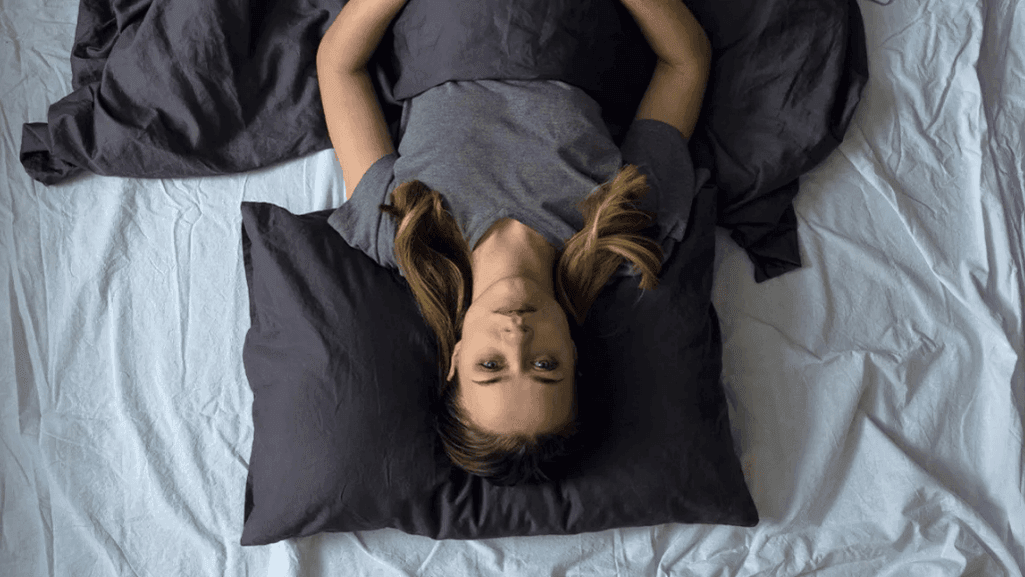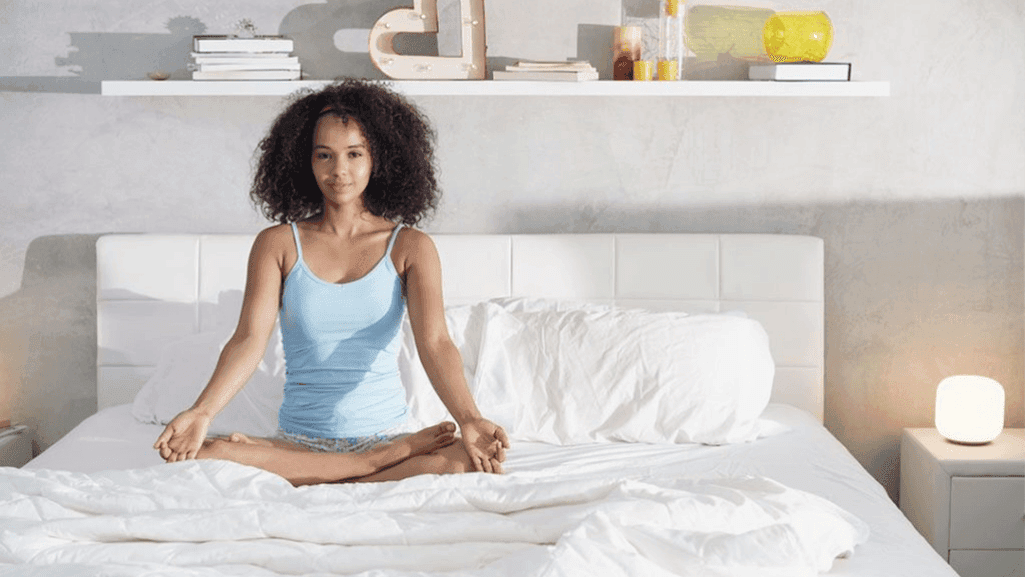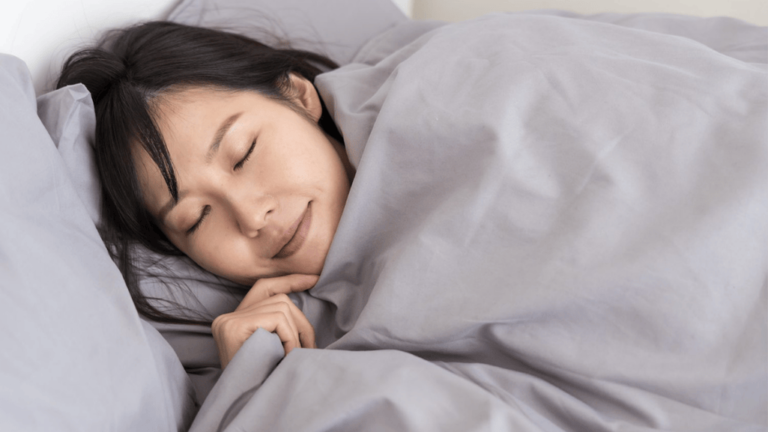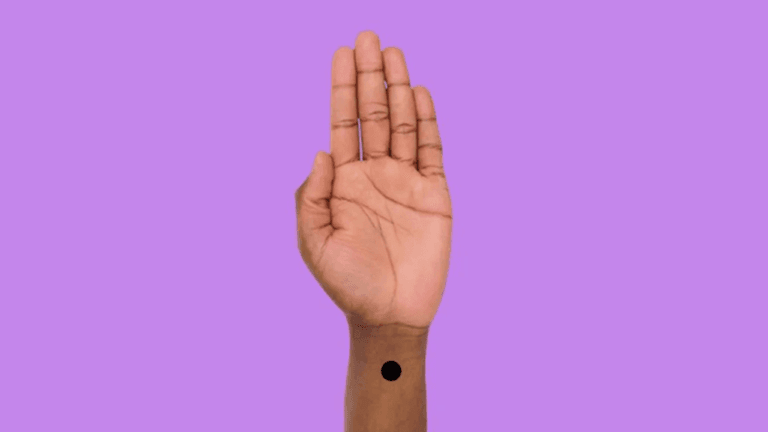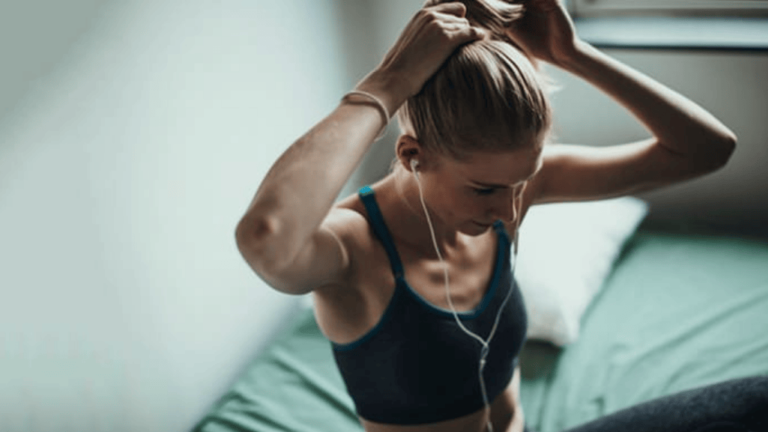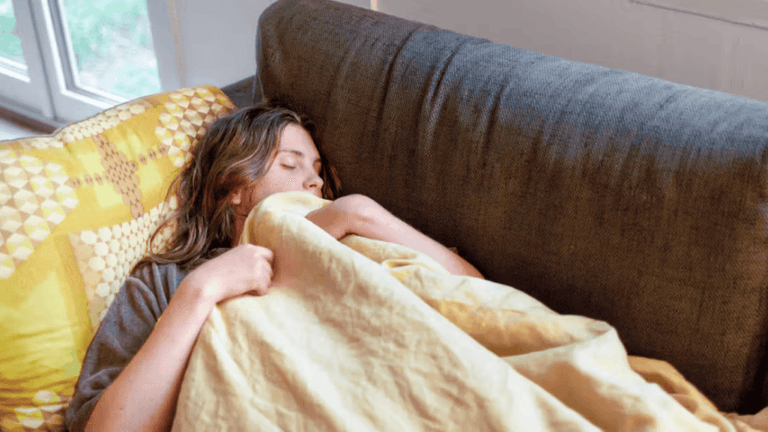Anxiety at night can make it hard to fall or stay asleep. It brings racing thoughts and nighttime panic attacks. These can cause a lot of distress and hurt your sleep quality.
Stress, trauma, and insomnia can lead to nighttime anxiety. When anxiety hits, it makes you feel too tense to sleep. It also changes how you sleep, reducing time in deep sleep.
Studies show 24% to 36% of people with sleep issues have anxiety. Nocturnal panic attacks affect 20% to 45% of those with panic disorder. They are three times more likely to have sleep problems.
But, there are ways to manage nighttime anxiety and sleep better. This includes finding what triggers your anxiety, practicing relaxation, making lifestyle changes, and getting professional help. This article will share expert tips for better sleep.
Key Takeaways
- Anxiety at night can lead to difficulties falling asleep or staying asleep, causing racing thoughts and physical symptoms.
- Various factors contribute to anxiety at night, including stress, trauma, and insomnia.
- Research indicates that sleep deprivation can trigger anxiety, and individuals with anxiety disorders have a higher risk of poor sleep.
- Strategies for managing anxiety at night include identifying triggers, practicing relaxation techniques, making lifestyle changes, and seeking professional help.
- Establishing a sleep schedule, avoiding stimulants, and creating a comfortable sleep environment can help reduce nighttime anxiety and improve sleep quality.
Understanding the Link Between Anxiety and Sleep
Anxiety and sleep issues are closely linked, with each making the other worse. Studies show that 10–30% of people have poor sleep quality. About 90% of young people with anxiety also have sleep problems. This shows how common the anxiety and sleep connection is.
A study in China found that older adults with poor sleep were more likely to get anxious. People with chronic insomnia often face mental health issues like anxiety and depression. This shows why good sleep is key for mental health.
How Anxiety Impacts Sleep Quality
Anxiety can make it hard to fall asleep or stay asleep. Anxious thoughts at night trigger stress, making it hard to relax. This stress can keep you feeling awake and agitated.
Anxiety also messes with the sleep cycle. It cuts down on deep and REM sleep, making you feel tired in the morning. A study found that using CBD oil helped about two-thirds of people sleep better over three months. This shows how tackling anxiety can improve sleep.
Common Symptoms of Nighttime Anxiety
Nocturnal anxiety can affect both mind and body. Symptoms include:
- Excessive worry and fear
- Restlessness and difficulty relaxing
- Physical discomfort, such as muscle tension or headaches
- Increased heart rate and sweating
- Shortness of breath or rapid breathing
- Dizziness or lightheadedness
- Trembling or shaking
- Nightmares or disturbing dreams
Spotting these symptoms is key to tackling nighttime anxiety. By tackling anxiety and improving sleep, people can feel better overall.
Identifying Triggers for Anxiety at Night
Many things can cause anxiety at night, making sleep hard. Knowing what triggers anxiety is key to better sleep.
Stress and Life Events
Stressful life events like new jobs or money worries can cause anxiety. The American Psychological Association says therapy works better than meds for anxiety. Finding and fixing the source of stress can help.
Poor Sleep Hygiene
Not getting enough sleep can also lead to anxiety. Drinking caffeine or alcohol before bed can make it worse. A study found that too much coffee can make anxiety and panic attacks worse. A regular sleep routine and a calm sleep space can help.
Medical Conditions and Medications
Some medical causes of anxiety like heart problems or diabetes can cause it at night. Some medicines can also cause anxiety. Talking to a doctor can help find and fix these issues.
“Anxiety disorders affect nearly 40 million adults in the U.S., making them the most common mental illnesses in the country.” – National Alliance on Mental Illness
Knowing what causes anxiety at night helps manage it. Making lifestyle changes like exercise and stress relief can help. Sometimes, professional help like therapy or meds is needed for chronic anxiety.
Relaxation Techniques to Calm Anxiety Before Bed
If you struggle with nighttime anxiety, you’re not alone. Almost a third of adults face chronic insomnia or sleep issues. Stress and anxiety often cause these problems. Luckily, there are relaxation techniques for sleep to calm your mind and body before bed.
Deep Breathing Exercises
Deep breathing for anxiety, or diaphragmatic breathing, can reduce stress. It makes you breathe more efficiently and calms your nervous system. Try deep breathing exercises for a few minutes each night to feel more relaxed.
Progressive Muscle Relaxation
Progressive muscle relaxation involves tensing and relaxing muscles to release tension. Start by tensing your feet for a few seconds, then relax them. Move up your body, tensing and relaxing each muscle group until you reach your head. This helps you unwind and get ready for sleep.
Mindfulness Meditation
Mindfulness meditation helps manage anxiety at night. It focuses on the present moment and lets go of anxious thoughts. Apps like Calm, Headspace®, or the Cleveland Clinic’s Mindful Moments offer guided meditations and sleep stories to calm your mind before bed.
Consistency is crucial with relaxation techniques. Using them regularly is more effective than short-term use. By adding these exercises to your nightly routine and keeping a consistent sleep schedule, you can train your body to relax and sleep better, even with anxiety.
Lifestyle Changes for Better Sleep and Less Anxiety
Making simple lifestyle changes can greatly improve your sleep and reduce nighttime anxiety. Dr. Jamie Dupuy, a mental health expert, offers tips on coping with anxiety and depression. He stresses the importance of good sleep and a regular sleep schedule.
Creating a calming sleep routine is key. Try reading a book, taking a warm bath, or doing gentle stretches before bed. These activities help your body relax and prepare for sleep.
Another good strategy is to set aside worry time in the day. Choose a specific time to think about your worries and jot them down in a journal. This helps clear your mind before bed, reducing anxiety at night.
“Limiting screen exposure before bedtime is essential for regulating your body’s internal clock. The blue light from screens can mess with your sleep-wake cycle, making it tough to fall asleep.”
Keeping a regular sleep schedule is vital. Try to sleep at least seven hours each night. Stick to the same bedtime and wake-up times, even on weekends. Avoid long naps during the day, as they can disrupt your night sleep.
- Establish a relaxing sleep routine
- Schedule worry time earlier in the day
- Limit screen exposure before bed
- Maintain a consistent sleep schedule
By making these lifestyle changes, you can improve your sleep and lessen anxiety at night. If sleep issues or anxiety persist, seek help from a healthcare professional.
When to Seek Professional Help for Nighttime Anxiety
If you’re always worried at night, it might be time to get help. You can look into professional treatment for anxiety. Clinical psychologist Elaine Ducharme says people spend a lot of money trying to feel better.
Panic attacks often happen between 1:30 and 3:30 a.m. This shows anxiety gets worse at night. Ducharme says the quiet and lack of distractions make it hard to sleep well.
If your night worries keep you up and affect your day, here’s what to do:
- Talk to your doctor. They can send you to a mental health expert and talk about medication options.
- Therapies like cognitive behavioral therapy (CBT) and CBT for insomnia (CBT-I) can help with anxiety and sleep.
- Be open with your doctor about your worries, how long they’ve lasted, and how bad they are. This helps them help you better.
Anxiety disorders can be treated. With the right help and support, you can manage your night worries. This will improve your life a lot.
“Anxiety disorders are the most prevalent mental health condition, affecting approximately 30 percent of adults at some point in their lives.” – Elaine Ducharme, Clinical Psychologist
Conclusion
Managing anxiety at night is key for better sleep and well-being. Knowing what causes nighttime anxiety helps. This includes stress, poor sleep habits, and health issues.
Using relaxation techniques like deep breathing and mindfulness can calm the mind and body. These methods help prepare for sleep. They are recommended by experts.
Making lifestyle changes can also help. Keeping a regular sleep schedule and a comfy sleep space is important. Avoiding caffeine and alcohol before bed is also crucial.
Studies link sleep problems to higher anxiety and depression. The COVID-19 pandemic made sleep issues worse, leading to “Coronasomnia.” Over half of Americans struggled with sleep during this time.
If anxiety keeps you awake and affects your daily life, get help. A mental health professional can offer strategies and treatments. This can help break the cycle of anxiety and insomnia.


